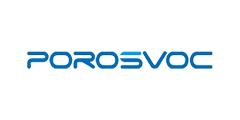What are the Main Differences Between Recording Chips and Playback Chips?

In conferences, important places, or important evidence conversations, products such as recording pens are often used. In addition, there are also products such as recording toys and recording boxes. The reason why they can record is that the mainboard has a built-in recording chip. Let POROSVOC tell you about the main differences between the recording chip and the playback chip in which aspects!

Fig.1
So what is a recording chip? How is it different from a sound chip?
First of all, voice chips can be divided into recording voice chips and playback voice chips from the functional APP. The main difference is that one has a recording function, and the other has no recording function, but both have a sound function.
Recording toys, recording pens, recording boxes and other products require recording functions, and the development of such products uses recording chips. The recording module developed by the recording chip has simpler peripheral circuits and better sound quality. In addition, since the recording module uses an external FLASH ROM as the storage center, it can record longer sounds, and can also insert TF card and USB memory to exchange sounds. There are also many products that use the sound function, such as sound toys, musical greeting cards, story machines, sound alarms, alarm clocks, clocks, and mobile phones. Such a product does not need to record the sound of the scene and only needs to download the processed sound to the sound chip for playback.
When designing a product using a sound chip, first consider whether to record the sound of the scene. If you need to record the sound, choose a sound chip with a recording function, otherwise choose a sound chip with only a sound function. Generally, a sound chip with a recording function has the function of playing sound, but when playing sound, there is no playing sound chip specifically for sound quality, so it is necessary to balance functions and sound quality when selecting a sound chip.
NR7100S has three modes: key control mode, parallel control mode, and two-wire serial control mode, which can be easily used on various occasions and is a cost-effective standardized recording and playback module.
- +1 Like
- Add to Favorites
Recommend
- What Fields are Recording Chips Generally Used in?
- Konos Microphone Adopts ONPOW‘s Push Button Switch, Bringing Excellent Durability and the Ability to Cope with Complex Environments to the Product
- A Introduction to The Power Management Chips from Xinbole XBLW - Analog Chips
- Bringing WIFI RF Front-end Chips, Low-noise Amplifiers, 5G Small Base Station RF Chips, CHIPBETTER Announced a Distribution with Sekorm
- High-Endurance, Low-Latency SD/microSD Cards Built for Dashcams, DVRs Offer Over 109K Hours of Continuous Video Recording
- The Technologies Involved in Speech Recognition Chips
- XBLW Xinbole Analog Chips: Signal Chain Chips (Part 3)
- What is the speed of Data Record Bluetooth Module?
This document is provided by Sekorm Platform for VIP exclusive service. The copyright is owned by Sekorm. Without authorization, any medias, websites or individual are not allowed to reprint. When authorizing the reprint, the link of www.sekorm.com must be indicated.






























































































































































































































































































































































































































































































































































































































































































































































































































































































